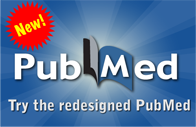- First, read "So, You Want to Be an Editor."
- Then read the blog posts "Becoming an Editor" and "What We Do" [Note: This item was updated August 20, 2011.]
- If you're still seriously interested, buy and work through The Copyeditor's Handbook: A Guide for Book Publishing and Corporate Communications and Business Planning for Editorial Freelancers: A Guide for New Starters. [Note: This item was updated August 20, 2011; April 10, 2013; and October 8, 2019.]
- I used to advise would-be editors to subscribe to Copyediting newsletter. But the newsletter's materials were sold at the start of 2019 to ACES: the Society for Editing. You can find some of its articles in the News section of the ACES website. [Note: This item was updated October 8, 2019.]
- Next, take the certificate program that the UC San Diego Extension offers. [Note: This item was updated October 9, 2019.]
- Meanwhile, follow the links found in the Copyeditors' Knowledge Base on my web site. Take action on those that will help you fill gaps in your knowledge.
- Then buy and read my onscreen booklet, Getting Started as a Freelance Copyeditor.
- After all of that, take any additional courses that you need. There are plenty available, many that can be completed online.
- Then begin contacting publishers and other organizations, offering your editing services. You will most often be required to take a copyediting test, time for which you will not be paid.
- If you have gotten this far in the process, join a profession-related organization for networking and continuing-education purposes and to have colleagues who can answer your questions and teach you client-relations skills. I highly recommend the Editorial Freelancers Association, of which I have been a member since 1995. There are many more such organizations that you may find helpful. [Note: This item was updated April 10, 2013.]
- Take courses periodically for the rest of your life. Above all, being a copyeditor requires being willing to constantly learn: Both language and grammar practices change over time, as does the technology used to edit. You may also want or need to learn related skills, such as indexing or page layout, to stay in demand in the industry.
- Educate yourself about the financial and tax implications of being a self-employed freelancer and about how to market your editorial services. You will be a businessperson, so you will need to know how to act like one.
career change self-employment freelancing copyeditor copyediting editor editing publishing EditorMom








